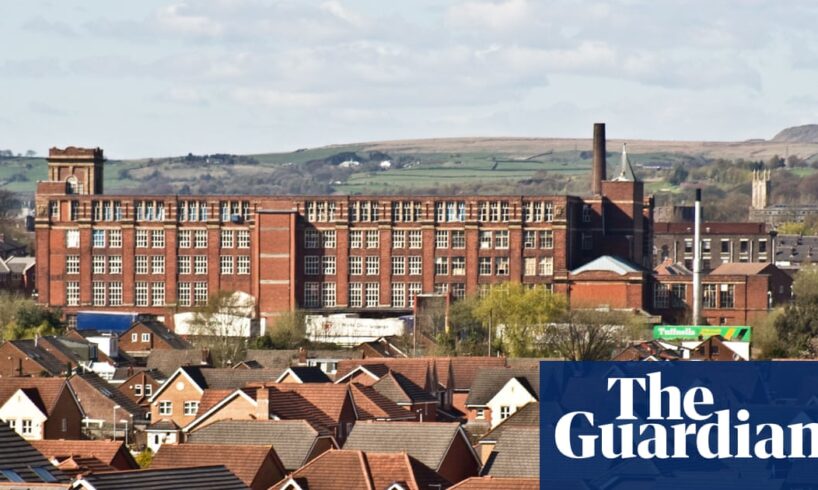
Your editorial rightly argues that collective belonging is rooted not only in place but also in shared purpose, and the dignified structures of mutual support that have too often been dismantled (The Guardian view on strengthening social cohesion: we can learn from the working-class past, 17 July).
Our work at the University of the West of England engages directly with these concerns through research into how light industry – historically a binding force in working-class towns – might be reintegrated into the heart of our communities in a sustainable manner. The disappearance of production from everyday urban life has not simply meant the loss of jobs; it has also eroded identity, civic pride and interdependence.
Industrial activity, once visible and valued, has been pushed out of sight, out of mind, and often out of reach. The result is a built environment that is increasingly monotone, functionally segregated and lacking the social and cultural layering that once reflected the richness of everyday life.
Our New Industrial Urbanism project, which we are developing with colleagues in the university’s college of arts, technology and environment, explores how new forms of small-scale, clean and socially embedded production can return to the high street, the town edge or the repurposed civic building.
We are working with communities to understand how productive infrastructure – combined with walkability, sustainability and shared space – can reknit the social and economic fabric of places hollowed out by the relocation of industry to faceless business parks on the urban fringe.
What is needed is not nostalgia for the past, but a reimagining of how making, crafting and producing can be civic acts. Social cohesion is not built through consumption but through participation – through people shaping their environments and economies together.
I applaud your focus on the importance of belonging. We must ensure that future towns do not just house people; they must empower them to make, contribute and connect.
Dr Piers Taylor
Professor of knowledge exchange in architecture, University of the West of England
As one of the recently appointed commissioners to the Independent Commission on Community and Cohesion, I read your editorial with interest. In my personal opinion, many of the answers to issues that are challenging for all communities – urban and rural, communities of interest and of place – are likely to be found in building trusted relationships, encouraging regular, honest communication and collaborative working.
Effective partnerships between charities, community groups, voluntary associations and decision makers and funders are invaluable in supporting civic engagement.
I would draw particular attention to the unique way in which the voluntary sector is regarded as a trusted partner in Wales. The existence of the Third Sector Scheme, setting out key roles and responsibilities between the sector and Welsh government, is envied across the UK and farther afield. Both the organised and informal networks of charities and voluntary organisations have the opportunity to work alongside the public sector, influencing policy and practice.
Sustainable engagement with the third sector is likely to support the development of better connected and more cohesive communities. Formal structures such as those in Wales can help achieve a renewed sense of common purpose.
Ruth Marks
Former CEO, Wales Council for Voluntary Action
Thank you for your editorial. You hail the reopening, post-refurbishment, of the Durham Miners’ Hall as a community hub and note that “cultivation of communal memory in post-industrial regions can play an important role in evoking a sense of solidarity and belonging”. Deep is my respect for these cultural memories of the industrial north-east. I am filled with similar pride reading about the role of cotton workers in the north-west during the cotton famine (1861-65).
Some 70 years before the American civil war, the first ever petition advocating an end to slavery was delivered to parliament in 1788. A second in 1792 came with 20,000 signatures from the people of Manchester.
Lancashire imported its raw cotton from the US southern states. Its mills employed 440,000 workers. From 1861, Abraham Lincoln’s north blockaded the cotton-exporting ports of the south. The cotton workers went, suddenly, from being the most prosperous workers in Britain to being unemployed.
Despite hardships, their support for the north, and its struggle to end US slavery in the south, remained undimmed. These hopes were expressed in a letter to Lincoln, drafted after a meeting at the Free Trade Hall in Manchester in December 1862. Within three weeks, Lincoln replied expressing gratitude for the workers’ “Christian heroism” in accepting their suffering in solidarity with the southern slaves. Lincoln’s words are displayed on his statue in Lincoln Square, Manchester.
Several of my ancestors worked in the mills. I swell with pride. If only these stories were better known.
Dr John Hull
Sheffield
Have an opinion on anything you’ve read in the Guardian today? Please email us your letter and it will be considered for publication in our letters section.





